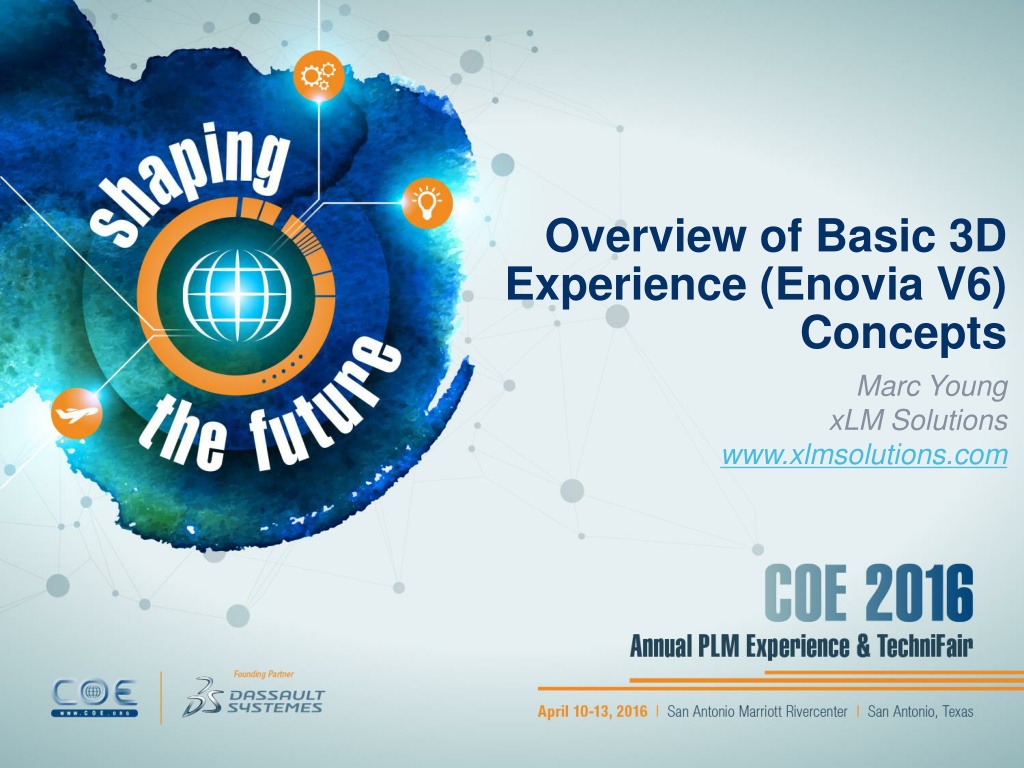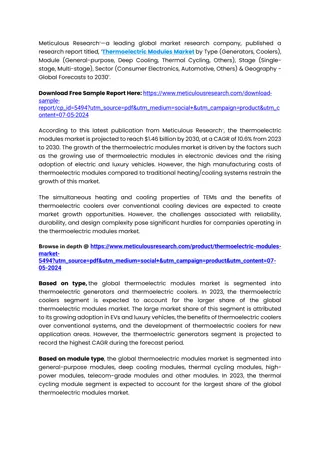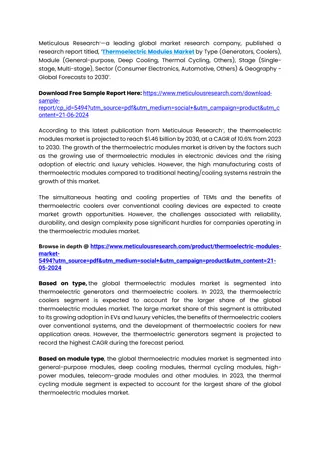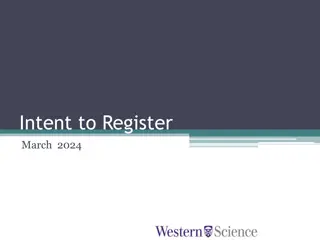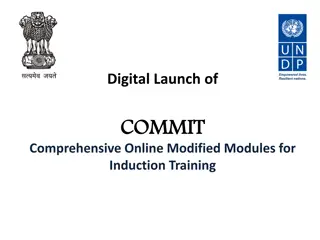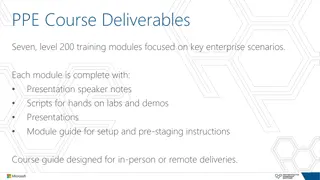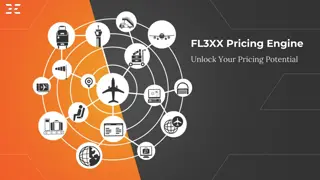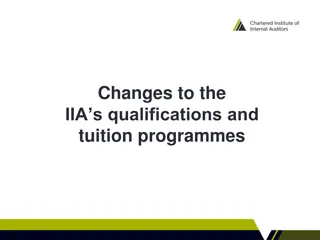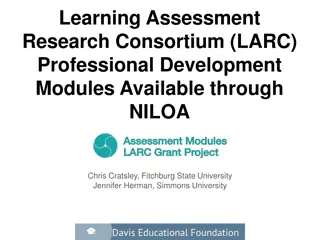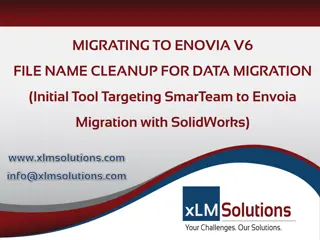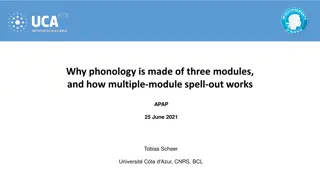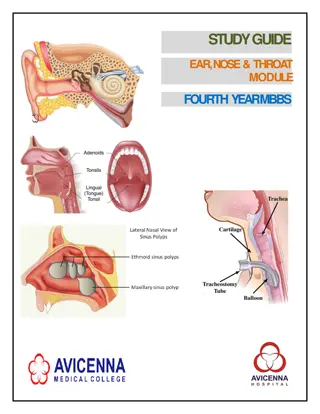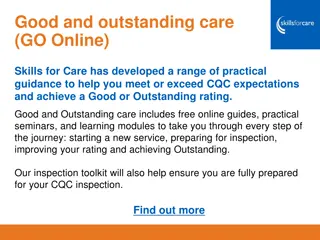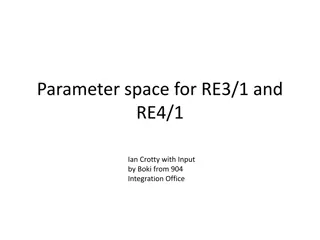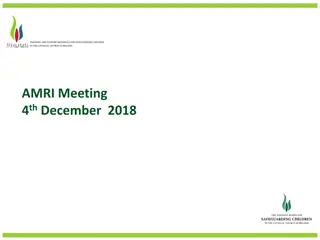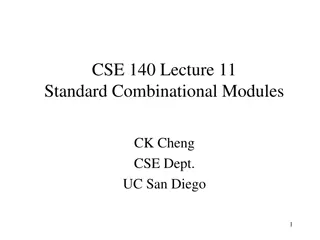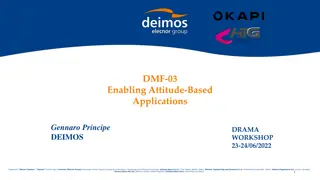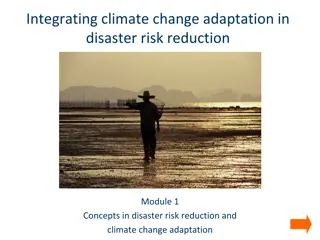Understanding Enovia V6 3D Experience: Concepts and Modules
Delve into the fundamental concepts of the Enovia V6 3D Experience, including architecture, modules like Designer Central and Engineering Central, schema vs. business objects, type and policy fields, routes and states, change management, and more. Explore the web-based client architecture, supported databases, and the significance of states and store triggers in the Enovia environment.
Download Presentation

Please find below an Image/Link to download the presentation.
The content on the website is provided AS IS for your information and personal use only. It may not be sold, licensed, or shared on other websites without obtaining consent from the author. Download presentation by click this link. If you encounter any issues during the download, it is possible that the publisher has removed the file from their server.
E N D
Presentation Transcript
Overview of Basic 3D Experience (Enovia V6) Concepts Marc Young xLM Solutions www.xlmsolutions.com
Agenda Architecture Type and Policy Routes State Workspaces GCO E-Bom Sync Security Conclusion
Modules Designer Central (CAD Integrations) VPLM Engineering Central (BOM, ECR/ECO) Project Central Library Central Accelerators .
Architecture 3 Tier Web based client Operating systems: Windows, Unix, Linux Supported Databases: Oracle, SQL Server, DB2 No database replication Supported Web Servers: Apache Tomcat, WebSpere, WebLogic Supports only Store* replication Customizations Java Based In Enovia V6 terminology a Store is equivalent to a Vault in other PLM systems Vault in Enovia V6 terminology is equivalent to a database
Schema vs Business Objects Schema are the Administrative Objects that control the look, feel, behavior of the system Types, Relationships, Commands, Tables, WebForms, Business Objects are the actual data that is created in Enovia. EC Part, Catia Drawing, Relationship between Part and Drawing Business Objects can have a Type which will drive the behavior of the object Type, Name and Revision are the unique identifiers
Type and Policy Type Fields (Attributes) Card Design Triggers Sub Types (inheritance) Maybe related to more than one policy Policy Security Revision Lifecycle States - Branching Store Triggers
Routes, States, Change Request, Change Order, Change Action Routes can be based on a template or be ad-hoc Create your own flowchart States can be customized but usually based on out of the box templates Change Request, Change Order, Change Action are Types that represent the Engineering Change V6 has built in functionality and security around these objects
States States can be configurable Not recommended to change out of the box states Driven by the object s Policy Objects will traverse through it states Moving forward is called move forward or backwards Promoting Moving backward is called Demoting Security is set by state Triggers can be place on promote to demote to make various check have happened before a promote or demote
Routes Routes can be created Ad-hoc / Route Template Routes can be used to define dynamic workflows Route Tasks are actionable items in V6 which can be configured for escalations past due date Routes are used to have multiple people review and sign off on the data with route completion as one of the following Promote object to next state Notify route owner Route Tasks can be Parallel or Series Mandatory or Optional Review or Approval Groups, Roles or Users can be associated to the task in the route
Engineering Change Change Request (CR) Ability for user to request a change to an object in the system Change Order (CO) Process that defines, evaluates, and implements a change Change order has a lifecycle for evaluation and implementation phases When a change order is created, a change action is automatically generated and connected to the change order. Change Action (CA) Change actions cannot be created manually Change action (CA) generation occurs from the change order's affected items. Technical Assignee (i.e. Design Engineer) is assigned to the Change Action to make the change
Workspaces Way to group data in V6 Can have sub workspaces and sub folders Security can be applied to any level in the Workspace structure Mostly used with CAD Integration / managing documents
GCO GCO performs the same operations but more Multiple GCO can exist and are tied to a users role Derived file formats Check out and locking behaviors LCO object available to set user specific integration behaviors
E-Bom Sync E-BOM Sync used to take Document Structure to Item Structure Items set as specification link (can be model and or drawing) Configurable via the GCO and JPO Collapse links / quantity - 4 wheels on a car Default Part Type - EC or Dev Part Part Name / Number Driver - CAD Model Name, auto number, Floating Links
Security Security Context Organization, Collaborative Space and Role State, Type, Group or Role Filter based i.e if an Attribute = certain value Routes Workspace Folders Owner
User Interface Schema There are 6 main types of UI Schema: Commands User triggered action Menus Collection of Commands Webforms Shows attributes of an object Tables Similar to forms i.e. relationships Channels Portals Multiple Channels make up a portal
Triggers Please to add custom code to the system 3 Types Check Before the action occurs Action After the action occurs Override instead of the action occurring
Administration Business Legacy tool for administration Property Files JPOs
Migration Methods, Technologies & Tools Manual Good for small data set Lengthy process No support for full history migration Automated JPOs, MQL and Tcl scripts - Requires comprehensive understanding of both source and target systems data model and possible source system APIs Strongly recommended to break it down to two steps (export\import), especially for large data sets (more than 10000 files or so) Uses V6 API slower migration ENOVIA V6 Adaplet - Partially Automated several automated steps to extract and later import the data into ENOVIA Requires comprehensive understanding of both source and target systems data model and possible source system APIs and SQL knowledge Direct DB updates methodology fast Spinner - Partially Automated Requires comprehensive understanding of both source and target systems data model and the Spinner tool itself Data needs to be programmatically extracted into spinner Additional fee Uses V6 API slower migration
Conclusion PLM Concepts are the same across various PLM systems 3D Experience is a great platform to map your business process to Do not be over whelmed we are here to help you
Thank You! Thank You! Questions Questions? ? Presentation will be available at: http://www.xlmsolutions.com Marc Young xLM Solutions, LLC. 248-926-5932 myoung@xlmsolutions.com
